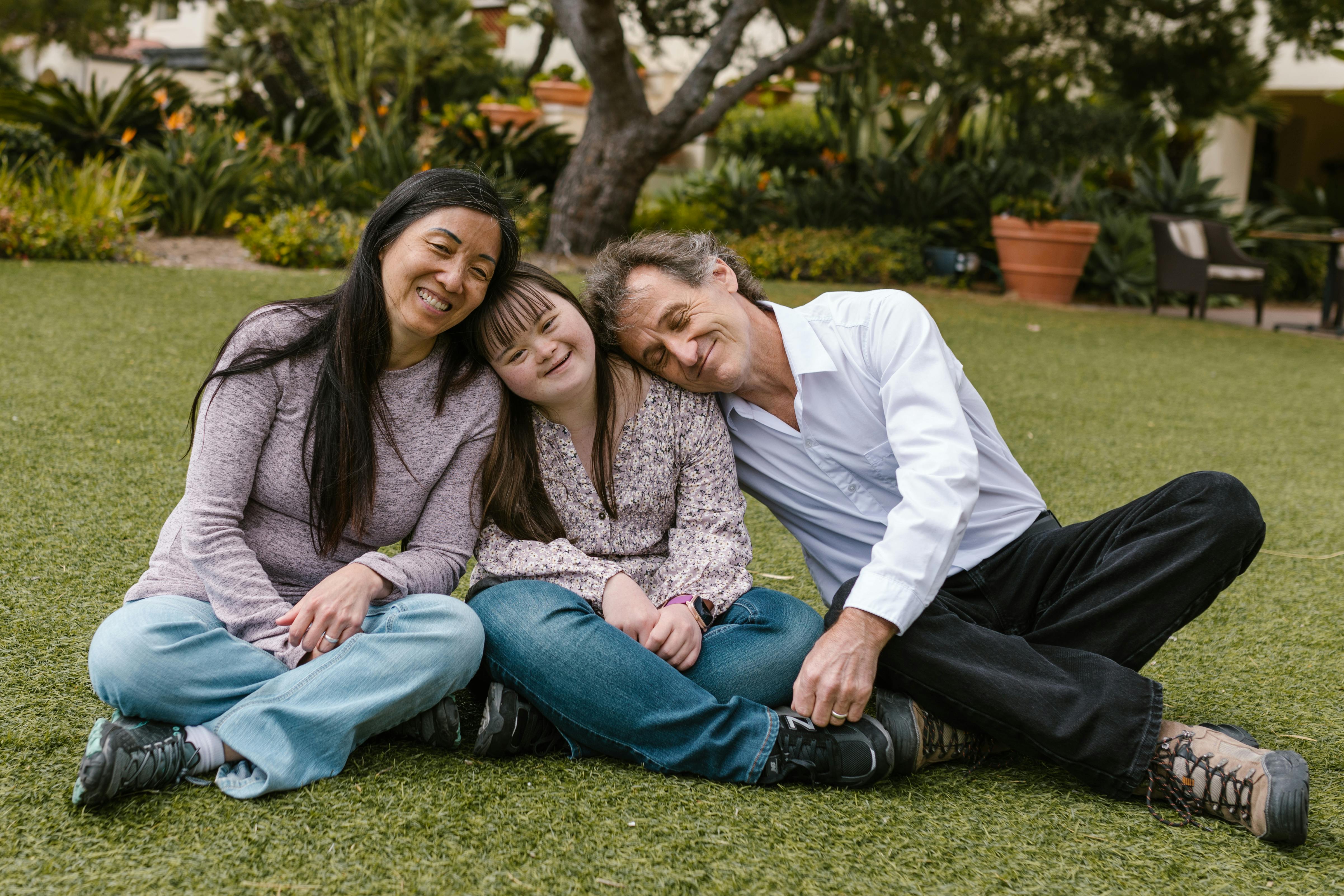You're at the supermarket. Your autistic child is having a meltdown because the fluorescent lights are too bright and the sounds are overwhelming. You're doing everything right, staying calm, using your strategies, being the parent your child needs.
Then you hear it.
"If that were MY child..."
"Kids these days have no discipline."
"What's wrong with them?"
Or worse, the stares. The whispers. The head shakes. The judgment that cuts deeper than any words.
Here's what I want you to know: You are not alone. You are not failing. And you absolutely deserve better.
Every parent of a disabled child has been there. That moment when a stranger's ignorance collides with your reality, and you're left feeling exposed, defensive, and exhausted. But here's the thing, you don't have to accept their judgment, and you don't have to stay silent.
This guide gives you real, powerful scripts you can use when strangers judge your disabled child in public. Because you deserve to advocate fiercely, protect your child's dignity, and walk away with your head held high.
Why Public Judgment Hurts So Much
Let's be honest: public judgment isn't just annoying, it's traumatic.
You're already managing sensory overload, behavioral challenges, medical appointments, therapy schedules, and NDIS paperwork. You're already giving 200% every single day. And then a complete stranger, someone who knows nothing about your life, your child, or disability, decides they have the right to comment.
It hurts because:
- You're already doing your absolute best
- You worry about your child internalizing the judgment
- You feel protective and powerless at the same time
- Society still doesn't understand invisible disabilities
- You're exhausted from constantly explaining and defending
But here's what those judgmental strangers don't see: your strength, your child's courage, and the beautiful, complex reality of your life.
The Scripts: What to Actually Say
When Someone Says: "That child needs discipline."
Calm & Educational:
"My child has autism. What you're seeing isn't a tantrum, it's sensory overload. They're doing their best."
Firm Boundary:
"My child has a disability. Your comment isn't helpful."
Confident & Direct:
"I didn't ask for your parenting advice. Please mind your business."
When Someone Stares or Whispers
Polite but Clear:
"Can I help you with something? You seem very interested in my family."
Educational Opportunity:
"My child has a disability. Staring makes things harder. Thank you for understanding."
Direct:
"Staring isn't kind. Please stop."
When Someone Says: "They look fine to me."
Educational:
"Not all disabilities are visible. My child has [autism/intellectual disability/sensory processing disorder], and we're managing it."
Short & Sweet:
"Disability doesn't always look the way you expect."
Firm:
"I don't owe you an explanation about my child's medical condition."
When Someone Offers Unsolicited Advice
Gracious Deflection:
"Thanks, but we're working with therapists who know my child's needs."
Honest:
"I appreciate you mean well, but unsolicited advice isn't helpful right now."
Blunt (when you're done):
"Unless you're my child's doctor or therapist, I'm not interested."
When Someone Says: "I could never handle that."
Empowering Response:
"You'd be surprised what you can handle when you love someone."
Honest:
"Some days are harder than others, but my child is worth it."
Redirecting:
"What we need is understanding, not pity."
Strategies Beyond Words
1. Carry Awareness Cards
Print small cards that say:
"My child has autism/disability. What looks like misbehavior is actually [sensory overload/communication difficulty/medical condition]. Thank you for your patience and understanding."
Hand them out instead of engaging verbally when you're overwhelmed.
2. Use Body Language
- Stand between your child and the judgmental person
- Make direct eye contact to show confidence
- Use open, protective body language
- Turn your back to signal the conversation is over
3. Find Your Allies
Look for the people who smile with understanding, offer help, or create space for you. They exist. Focus on them, not the judgment.
4. Practice Self-Compassion
After a public incident, you might replay it over and over. Stop. You did your best. Your child is safe. That stranger's opinion doesn't define you or your parenting.
Build your child's resilience by connecting them with disability communities where they're understood and celebrated. If you're looking for local disability-friendly events and support networks, explore our article on building community connections for disabled children.
The world is slowly becoming more inclusive, but we're not there yet. Until we are, you have every right to advocate fiercely, set boundaries firmly, and prioritize your child's wellbeing over strangers' comfort.
Your child is lucky to have you. And that judgmental stranger at the supermarket? They have no idea what strength looks like, but you do. You live it every single day.
Navigate Disability Parenting with Confidence
Public judgment is just one of many challenges disability parents face. My Special Needs is here to support you through all of them.
Our platform helps Australian families:
- Connect with understanding communities who get it
- Access local disability resources and support services
- Track therapy progress and manage appointments seamlessly
- Find disability-friendly events where your family is welcomed
- Get 24/7 AI support for those overwhelming moments
You don't have to navigate this journey alone. Join thousands of Australian families who are building confidence, finding community, and creating better lives for their disabled loved ones.
Download My Special Needs today and discover the support system you've been searching for.


